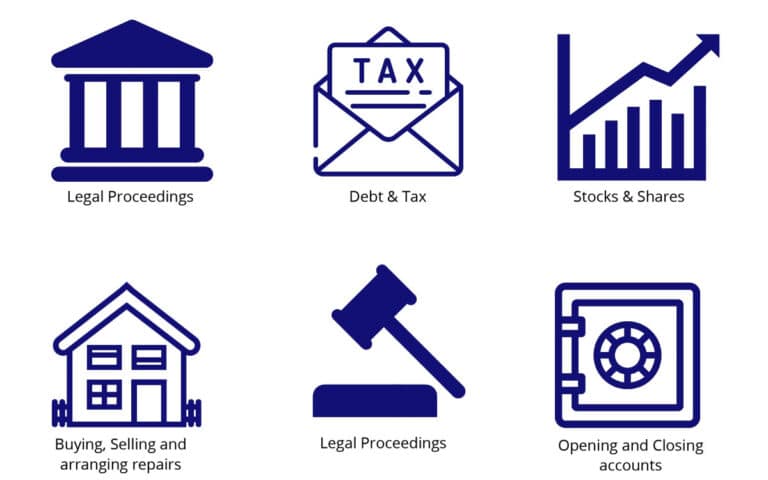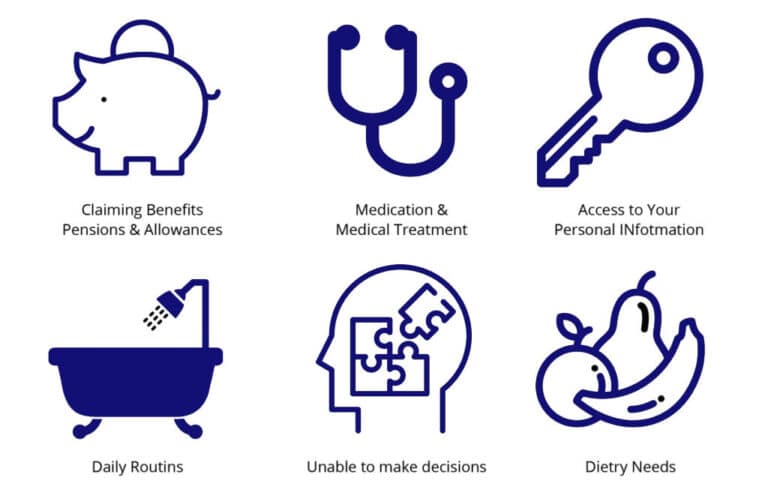Lasting Power Of Attorney

Your Power of Attorney is a legal tool that allows you to appoint someone to make decisions on your behalf. It gives them the authority to make the big decisions if you lack mental capacity at some point in the future. Or, if you no longer wish to make those decisions for yourself. In a Power of Attorney, you’re known as the ‘donor’. The trusted people you choose to make the decisions are called ‘attorneys’.
With 1 in 14* People over the age of 65 now suffering from Dementia, its good to have a plan. (*alzheimers.org.uk,2104.) thats why putting your Finance & Property and Health & Welfare Power of Attorneys in place NOW will help.
More of us become unable to manage our affairs these days. Without a Power of Attorney your family may need to go to court. This can cause lots of hassle, delays and expense. Currently there are 850,000 people in the UK living with Dementia. It’s estimated that by 2025 this will exceed over a million (source: Alzheimer’s Research UK, 2015)
What happens if there’s no power of attorney?
The courts may appoint someone to manage your financial affairs
Your friends or family may need to go to court to get authority to act on your behalf – this can be a lengthy, costly & upsetting experience
Doctors could rule loved ones on decisions you have already made regarding health matters
By setting up a Power of Attorney now, you make things easier in the future whilst keeping control of your affairs now
Our specialist consultant will come to your home at a time convenient for you and your family
- Warm and friendly accredited consultants
- Expert advice tailored to your specific situation
- We prepare thousands of Powers of Attorney each year in the UK
- Prepared and registered for you
- You keep full control
- Hassle free process
- Quick turnaround if required
- Affordable fixed price
- 5-Star Google Review Rating
IMPORTANT – Registration and the Office of the Public Guardian
Your Power of Attorney must be registered with the Office of the Public Guardian before it can be used. We can take care of this for you



